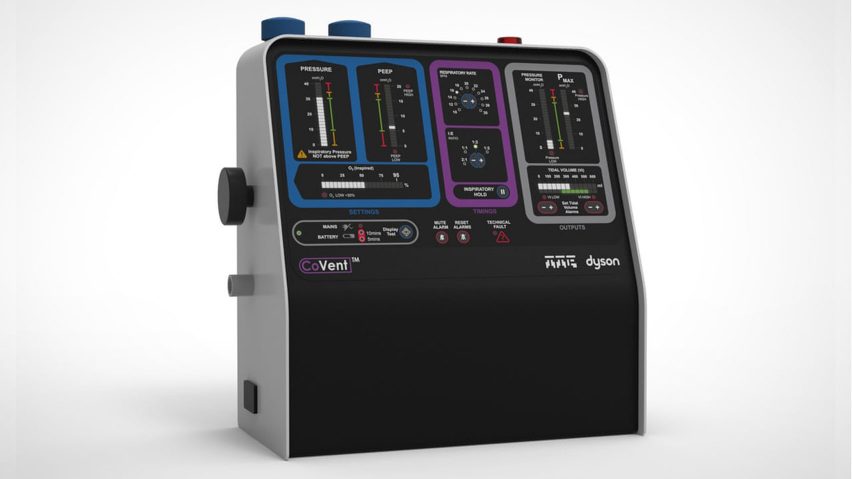British technology company Dyson has designed a ventilator and is primed to produce 15,000 units in the coming weeks to help meet the demand caused by the coronavirus pandemic.
Named CoVent, the ventilator was developed by the company in only 10 days, after Dyson was among the manufacturers contacted by Prime Minister Boris Johnson to help bolster the National Health Service's supply of ventilators.
According to the government, the NHS needs to increase its number of ventilator from 8,175 to 30,000. They are needed in order to accommodate the expected number of Covid-19 patients, who in severe cases of the disease rely on the ventilators to breathe.
Dyson to supply 10,000 units to NHS
Given regulatory approval, which Dyson expects to be granted by Friday, 10,000 units could be supplied to the UK government.
The company's founder James Dyson explained in an email to staff that he would donate a further thousand to the country himself, while 4,000 will be donated abroad.
NEW: Dyson to build at least 15,000 ventilators at Hullavington in Wiltshire.
Hangar 85 is where they will be produced with 10,000 paid for by UK Govt & Sir James Dyson paying for 5,000 (4,000 of which are expected to be sent to other countries) @itvnews @itvwestcountry pic.twitter.com/8aqwXW5uqc— Rupert Evelyn (@rupertevelyn) March 25, 2020
Rather than gaining permission to reproduce a proprietary design, the company worked with the medical device company The Technology Partnership (TTP) to create the product from the ground up.
"The core challenge was how to design and deliver a new, sophisticated medical product in volume and in an extremely short space of time," Dyson wrote.
The final design utilises Dyson's existing digital motor, while engineers drew on their "air purifier expertise" to devise the filtration and air flow system.
"Race is now on to get it into production"
The CoVent is battery-powered, portable and can easily be mounted to a patient's bed, making it suitable for a range of different clinical settings.
"This new device can be manufactured quickly, efficiently and at volume," Dyson wrote. "The race is now on to get it into production."
The government is reportedly testing the viability of the prototype, along several others in collaboration with clinicians.
While Dyson has designed a device from scratch, the Airbus-led consortium Ventilator Challenge UK is set to supplement the production of existing ventilator models pending the go-ahead from regulators.
The government has also placed orders with existing medical device manufacturers such as Inspiration Healthcare, that have a small-scale but shorter turnaround time than manufacturers usually geared towards other products.
The shortage of ventilators is far from restricted to the UK. In the US, Tesla and SpaceX founder Elon Musk, as well as car manufacturers General Motors and Ford are investigating how they could help bolster the supply.
Meanwhile in Italy, a local 3D printing company had to resort to reverse engineering and fabricating emergency valves for the devices, when a hospital could not meet the unprecedented demand.

